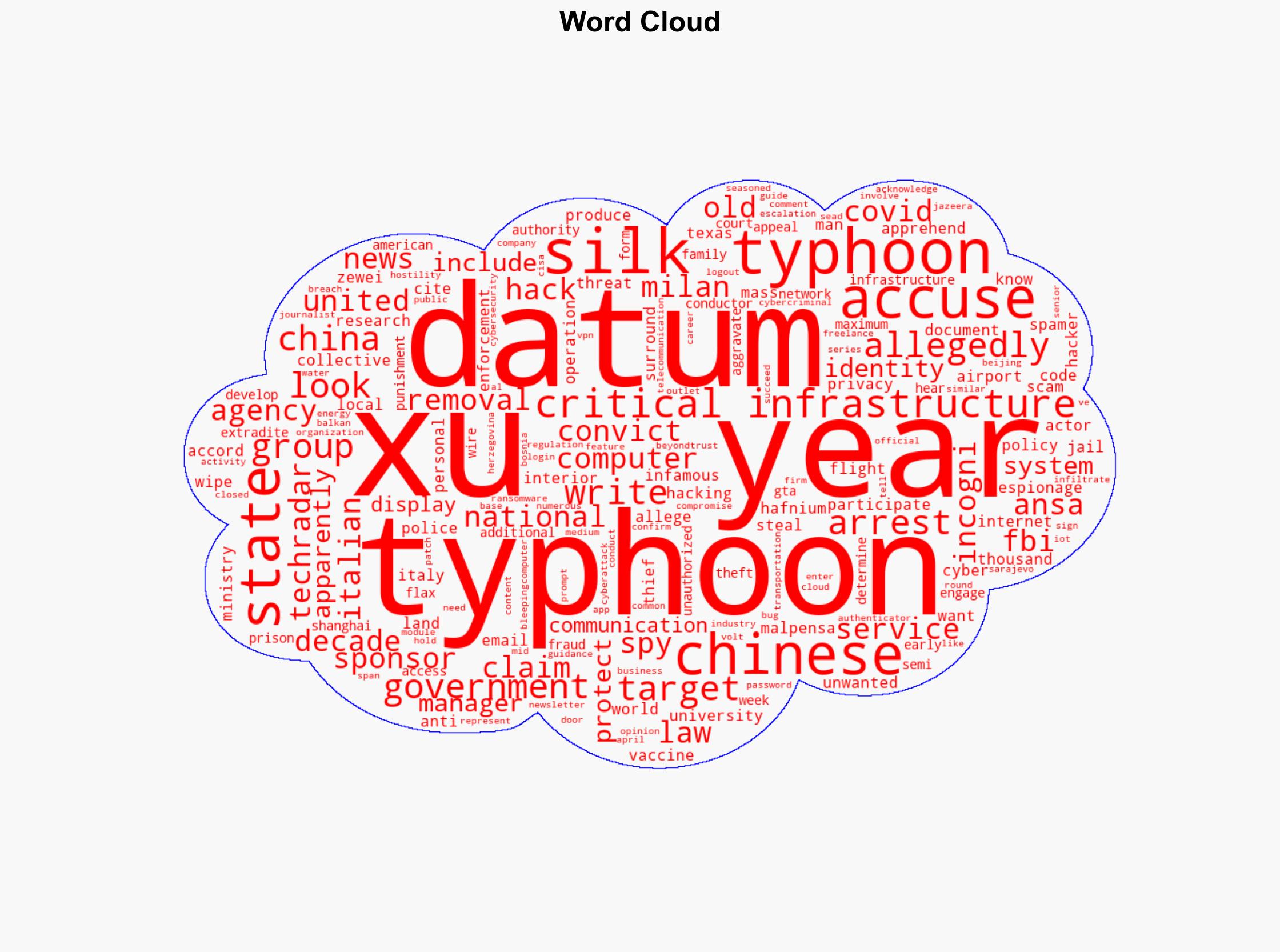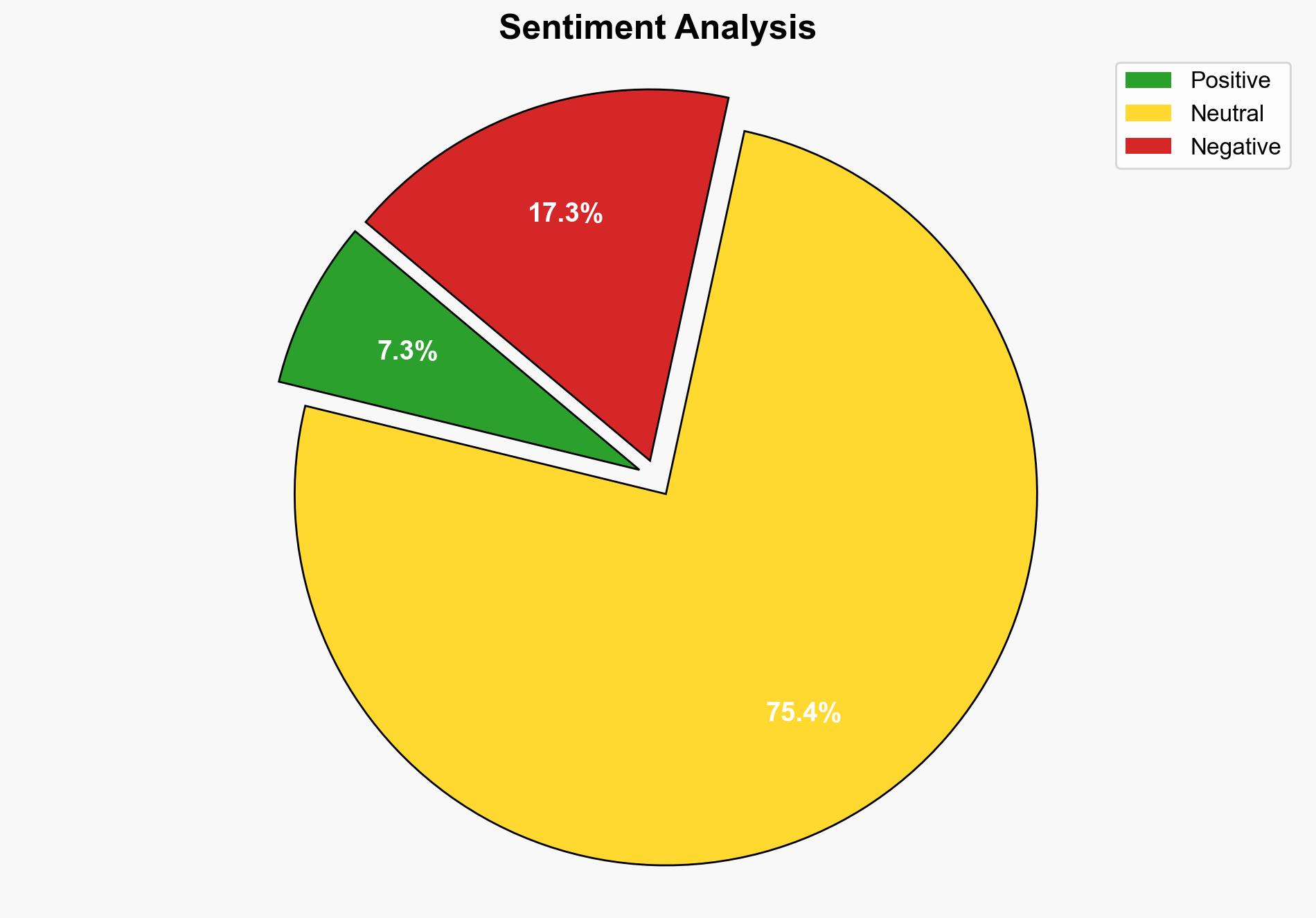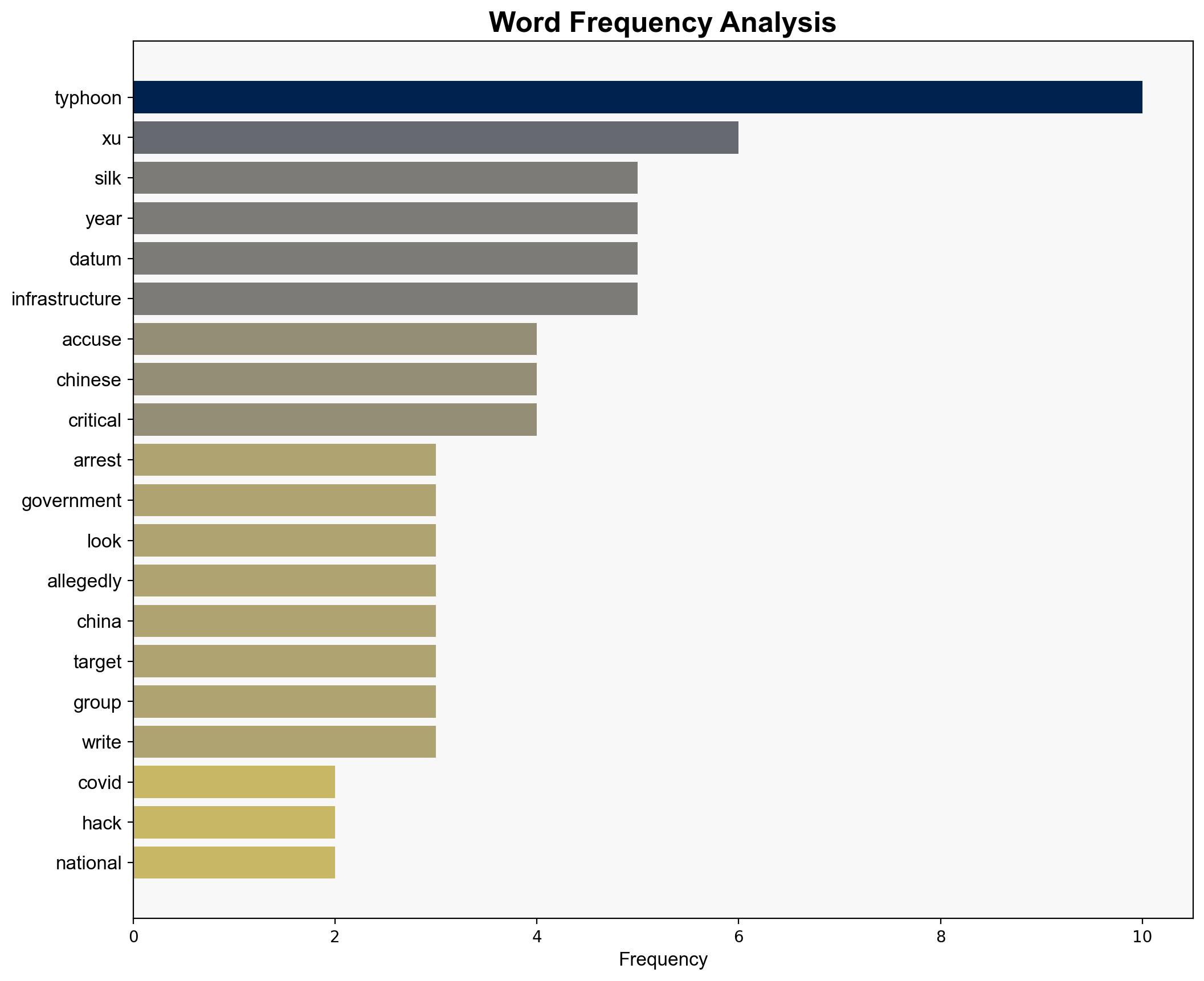US arrests Silk Typhoon hacker accused of stealing Covid research and mass email hacking – TechRadar
Published on: 2025-07-09
Intelligence Report: US arrests Silk Typhoon hacker accused of stealing Covid research and mass email hacking – TechRadar
1. BLUF (Bottom Line Up Front)
The arrest of a Chinese national, Zewei Xu, in Italy highlights significant cybersecurity threats posed by state-sponsored hacking groups, specifically Silk Typhoon, also known as Hafnium. This group is accused of cyber espionage targeting Covid-19 research and critical infrastructure. The arrest underscores the need for enhanced international cooperation and cybersecurity measures to protect sensitive data and infrastructure.
2. Detailed Analysis
The following structured analytic techniques have been applied to ensure methodological consistency:
Adversarial Threat Simulation
Simulations indicate that state-sponsored groups like Silk Typhoon exploit vulnerabilities in critical infrastructure, necessitating robust defense mechanisms.
Indicators Development
Continuous monitoring of network anomalies is crucial for early detection of similar cyber threats.
Bayesian Scenario Modeling
Probabilistic models suggest a high likelihood of continued cyberattacks targeting healthcare and governmental sectors.
Network Influence Mapping
Mapping reveals extensive influence networks that Silk Typhoon utilizes to coordinate cyber operations globally.
3. Implications and Strategic Risks
The arrest could strain US-China relations, with potential retaliatory cyber actions. There is a risk of increased cyberattacks on critical infrastructure, which could disrupt essential services and economic stability. The incident highlights vulnerabilities in international cybersecurity frameworks and the need for cohesive global strategies.
4. Recommendations and Outlook
- Enhance international cybersecurity collaboration to improve threat intelligence sharing and response capabilities.
- Invest in advanced cybersecurity technologies and training to protect critical infrastructure.
- Scenario Projections:
- Best Case: Strengthened international cooperation leads to reduced cyber threats.
- Worst Case: Escalation in cyber warfare impacting global critical infrastructure.
- Most Likely: Continued cyber espionage activities with periodic disruptions.
5. Key Individuals and Entities
Zewei Xu
6. Thematic Tags
national security threats, cybersecurity, counter-terrorism, regional focus




